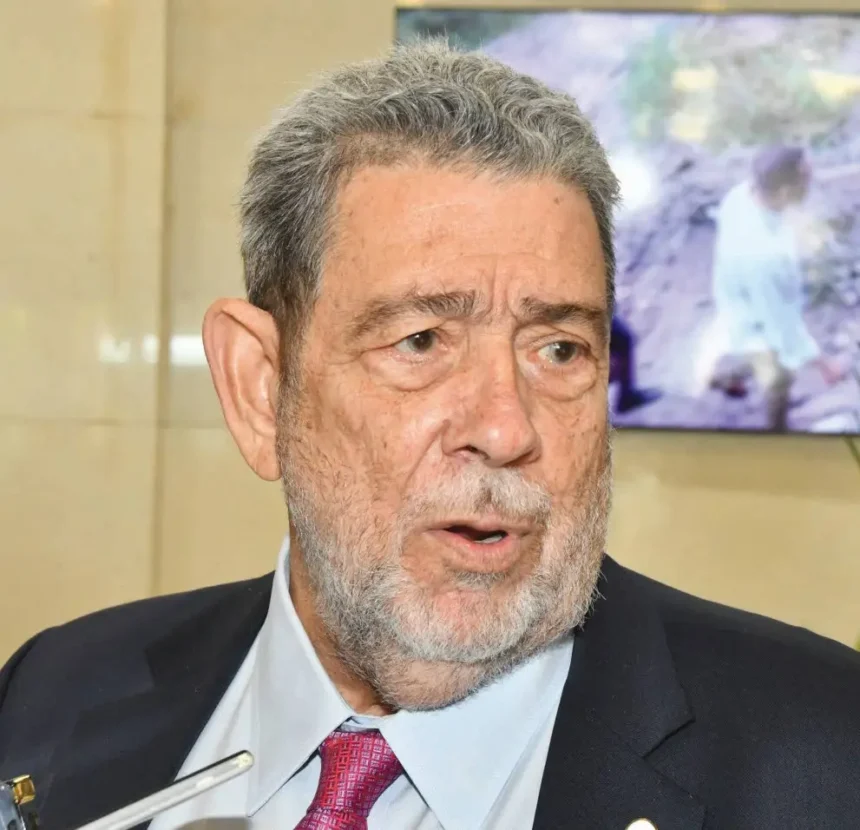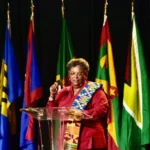— St Vincent and the Grenadines Prime Minister Dr Ralph Gonsalves has praised Jamaica for leading the Caribbean in the use of advanced forensic scientific tools to combat crime, saying other countries in the region should follow its example.
Gonsalves was speaking with journalists following a plenary business session at the 49th Regular Meeting of the Conference of Heads of Government of the Caribbean Community (Caricom) at Montego Bay Convention Centre on Monday
.He said said that, although his country uses modern forensic technology, Jamaica is more advanced than the other regional states.
“We are using modern information technology and other advanced forensic scientific tools, but Jamaica is ahead of all of us in the Caribbean dealing with this, and we have to learn from Jamaica,” Gonsalves said.
He joined Jamaica’s Prime Minister Dr Andrew Holness in underscoring the need for a combined approach to tackle violent gangs in the region before they escalate further.
“There is, in several countries, something amounting almost to a low-intensity civil war between some different groups, some may call them gangs. Some may call them associational groupings, and we have to be careful that this thing ain’t get completely out of hand,” Gonsalves said.“We need to coordinate our work better with other countries which operate in the region, the US, and Britain, and Canada, and France, [and] the European Union generally. We have to address this thing in a coordinated way. It’s vital,” he added.
His comments were endorsed by Barbados Prime Minister Mia Mottley, who told journalists that no country in the region is spared from violence, although it occurs at varying degrees, and the situation is worsened by the involvement of firearms.
“Throughout the entire region we are facing serious problems. Different countries have different gradations of the same problem, but there is no country in the Caribbean that is exempt now from, regrettably, violence, and the violence becomes even more intense once people have access to guns,” Mottley said.
“I’ve said over and over that it was gunpowder that allowed a smaller number of Europeans to take over the continent of Africa. So, can you imagine what guns will do to this region if given the chance, and when guns are combined with corruption or illicit trade in drugs and substance abuse and all of the other things, and combined with our inability to deal with conflict resolution sufficiently?” Mottley argued.
“And then, as Prime Minister Holness said, there are now some instances, in some countries, where the transnational organised crime, when layered on top of that, can become, literally, a major, major problem for all of us, and is as important as any other issue that we face today,” she added.She said that expertise is available within the region to address the scourge of violence; however, she recommended that countries without the expertise should look outside.
“I believe that we have a lot of it, but we still have to go outside, and I’m not standing on ceremony. Where countries do not have access to the best possible expertise, then we need to go and get it. The Caribbean does well when we engage the best, whether the best comes from within or the best comes from outside. Remember, we’re the ones engaging, we’re the ones paying. So what matters is people’s delivery for what we ask them to do,” Mottley said.
Pointing out that in Barbados the law has been enhanced to tackle the crime issue, Mottley said, “We’ve strengthened our legislation and criminal justice. The truth is that the Caribbean, for the most part, did not modernise its criminal justice system, and a lot of us have now been doing it over the course of the last few years.”
On Sunday Holness, who now chairs Caricom, urged regional states to take a strong stance on organised criminal gangs and argued that gang violence must be regarded as acts of terrorism.
He said that gang networks have evolved far beyond traditional street-level crime, posing a threat to the region’s security, and must be given the same urgency and coordination that characterises global responses to terrorism.
“I am on record as saying that we need to launch a war on gangs of a similar magnitude and nature to the war on terror,” Holness said, adding that Caricom countries must work together to cut off the access of criminal networks to resources, including the financial system.
He cited a July 2024 United Nations report that highlighted the problem of gangs in Jamaica, St Lucia, Guyana, and Trinidad and Tobago, noting that the report also linked surging drug production in South America and widespread firearm availability to rising homicide rates.
“It is the organisation of violence for profit. It is not merely street-level, dispossessed, socially excluded youngsters. There is a level of intelligence, a level of resources, a level of organisation that has been brought to crime and violence, which is being used for profit,” he said. “So, my own view is that policy and jurisprudence need to evolve to address this matter.”
Arguing that the scale and magnitude of the problem cannot be addressed overnight and through short-term measures, Holness said the solution will require significant investment and unified public support across the region.
He pointed to the Jamaica Constabulary Force’s Technology Expo 2.0, which is on view at the conference, and said it is “intended to spotlight our shared commitment to build a safer, more resilient region by exchanging ideas, innovations and best practices”.
Added Holness: “There’s also an opportunity for you to see how the significant investments made by the Government of Jamaica in national security over the past nine years are yielding results in crime reduction and public safety.”










